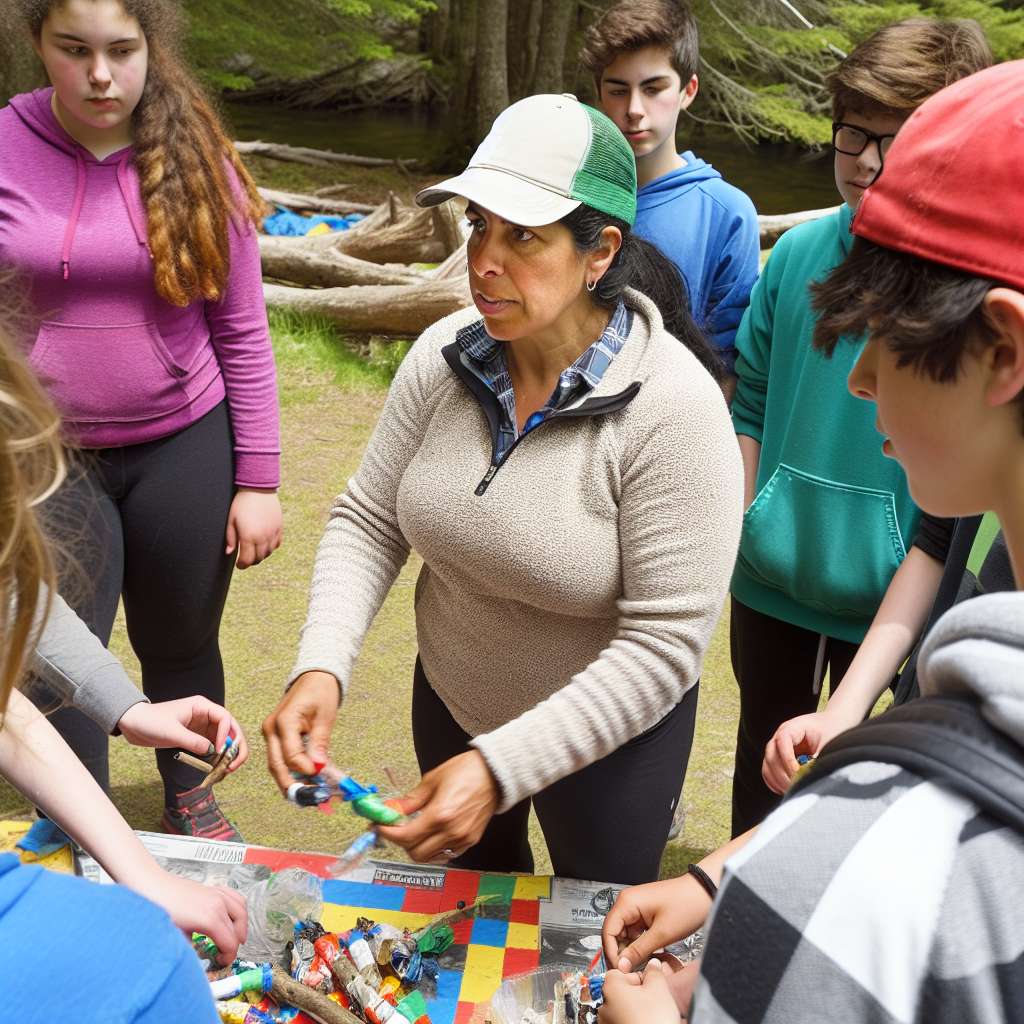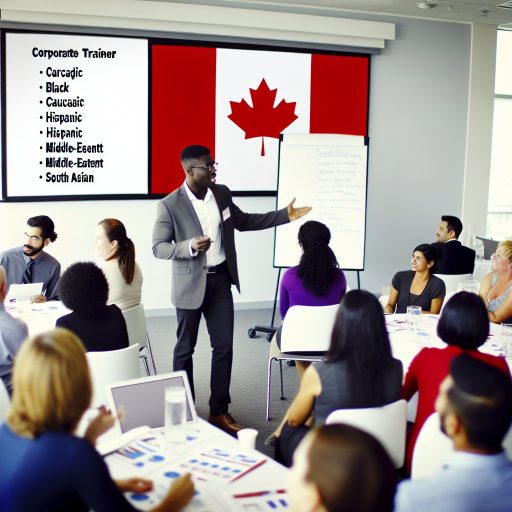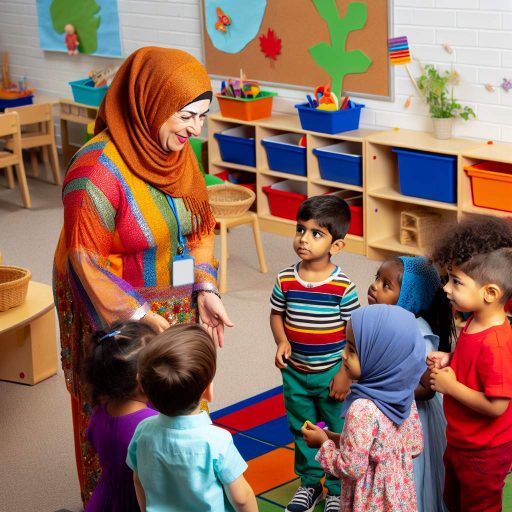Understanding the Needs of Youth
Empathy as a Cornerstone
Empathy is essential for connecting with youth.
It builds trust and creates an open environment.
Facilitators should strive to understand their challenges.
Listening attentively allows youth to express themselves freely.
Active Listening Skills
Active listening enhances communication between facilitators and youth.
This skill involves fully focusing on the speaker.
Facilitators must avoid distractions while listening.
Repeating or paraphrasing what the youth share shows understanding.
Creating a Supportive Atmosphere
A supportive atmosphere encourages youth to participate.
Facilitators can foster this by being approachable and friendly.
Encouragement is vital when youth share their thoughts.
Creating a safe space improves engagement and trust.
Building Relationships
Strong relationships lead to meaningful youth programs.
Facilitators should take time to get to know participants.
Knowing individual interests and backgrounds helps tailor activities.
Relationships built on mutual respect improve group dynamics.
Strong Communication Skills
Articulating Ideas Clearly
An effective youth program facilitator must convey ideas clearly.
This clarity ensures participants understand the objectives.
Clear articulation encourages engagement among youth.
Utilizing simple language makes concepts accessible.
Facilitators should avoid jargon that may confuse attendees.
Overall, clarity fosters a positive learning environment.
Engagingly Interacting with Youth
Engagement is vital for capturing youths’ attention.
A facilitator can use stories to illustrate points effectively.
Interactive activities also stimulate participation and interest.
Unlock Your Career Potential
Visualize a clear path to success with our tailored Career Consulting service. Personalized insights in just 1-3 days.
Get StartedMoreover, asking questions invites youth to contribute.
Facilitators should maintain eye contact to build rapport.
Active listening demonstrates that their opinions matter.
Encouraging Open Communication
Creating a safe space promotes open dialogue among participants.
Facilitators should encourage sharing diverse viewpoints.
They can establish ground rules to maintain respect and openness.
Additionally, summarizing discussion points reinforces understanding.
Valuing participants’ input boosts their confidence to speak up.
This fosters a collaborative learning community.
Adapting Communication Styles
Different participants have varying communication preferences.
Effective facilitators adapt their style to suit the audience.
For example, visual aids assist those who learn differently.
Conversely, group discussions can benefit those who prefer interaction.
Flexibility enhances the overall learning experience.
Ultimately, adapting improves understanding and retention.
Flexibility and Adaptability
Importance in Youth Programs
Flexibility is essential for effective youth program facilitators.
Adapting to changing circumstances enhances learning experiences.
Youth programs often face unexpected challenges.
Facilitators must quickly modify their approaches as needed.
Responding to Diverse Needs
Every group of youth is unique with varying needs.
Some may require more support while others thrive independently.
Understanding these differences fosters a positive environment.
Facilitators should actively listen to participant feedback.
This helps in tailoring sessions that resonate with the group.
Implementing Creative Solutions
Creativity plays a vital role in problem-solving.
Facilitators must think outside the box during activities.
For instance, altering a game format can boost participation.
Additionally, incorporating new themes keeps sessions engaging.
Flexibility allows facilitators to pivot strategies effectively.
Building Resilience in Programming
Facilitators should model resilience for youth participants.
Overcoming challenges together strengthens group dynamics.
Highlighting adaptability encourages youth to embrace change.
Resilient programs stand the test of time and circumstances.
Ultimately, flexibility leads to lasting impacts in youth development.
See Related Content: The Importance of Play in Early Childhood Education Programs
Leadership Qualities: Inspiring and Motivating Participants
Demonstrating Passion
An effective facilitator exhibits genuine passion for their work.
This enthusiasm is contagious and inspires participants to engage.
When a facilitator loves the subject, others are drawn in as well.
This energy creates a positive environment for learning.
Building Relationships
A successful youth program facilitator builds strong relationships.
They connect with youth on a personal level to foster trust.
This connection encourages open communication and collaboration.
Additionally, strong relationships lead to a supportive community.
Encouraging Participation
An effective facilitator actively encourages participation from all members.
They create activities that engage everyone equally.
This involvement ensures diverse perspectives are shared.
Moreover, it enhances the overall learning experience for participants.
Setting Goals and Expectations
Facilitators set clear goals and expectations for the program.
They communicate these objectives to all participants.
Clarity helps everyone understand their roles and contributions.
This structure promotes accountability and enhances teamwork.
Providing Constructive Feedback
Effective facilitators offer constructive feedback during programs.
They help participants identify strengths and areas for improvement.
This approach fosters personal growth and skill development.
Furthermore, it encourages a culture of continuous learning.
Celebrating Achievements
A good facilitator celebrates the achievements of participants.
Recognizing accomplishments boosts confidence and motivation.
Additionally, celebrations contribute to a positive group dynamic.
This practice encourages participants to strive for success.
Find Out More: The Growing Demand for Instructional Designers in Canada
Cultural Competence: Recognizing and Valuing Diversity Among Youth
Understanding Cultural Competence
Cultural competence involves understanding and appreciating diversity.
It requires facilitators to recognize their own biases and assumptions.
Being culturally competent enhances communication with youth.
This skill fosters an inclusive and respectful environment.
Valuing Diversity
Diversity enriches a youth program significantly.
Facilitators should actively celebrate different cultures and backgrounds.
They can use diverse materials and examples to engage youth.
This practice validates each participant’s identity and experiences.
Building Relationships
Effective facilitators create meaningful connections with youth.
They listen actively and offer support without judgment.
Building trust encourages open dialogue about cultural differences.
It is essential for fostering a safe and welcoming atmosphere.
Adapting Strategies
Culturally competent facilitators adapt their strategies accordingly.
They tailor activities to suit the diverse needs of the group.
This flexibility helps ensure everyone feels included.
Moreover, it encourages participation from all youth, regardless of background.
Continuous Learning
Cultural competence is an ongoing process of learning.
Facilitators should seek feedback from participants regularly.
They can attend workshops and read relevant literature.
Staying informed allows them to better serve diverse groups.
Discover More: Balancing Creativity and Curriculum in Early Childhood Education

Conflict Resolution Skills: Managing Disputes and Creating a Safe Environment
Importance of Conflict Resolution
Effective conflict resolution fosters positive relationships among participants.
It empowers youth to express their feelings safely.
Moreover, it equips them with essential life skills.
Strategies for Conflict Resolution
First, facilitate open communication among all parties involved.
This approach encourages honest discussions about the conflict.
Next, practice active listening to understand different perspectives.
Additionally, guide participants to identify common goals.
Ultimately, aim for collaborative solutions that satisfy everyone.
Creating a Safe Environment
Setting ground rules helps establish a respectful atmosphere.
Furthermore, ensure confidentiality to make participants feel secure.
Encourage empathy by fostering a culture of understanding.
Moreover, provide support and guidance during conflict situations.
Training and Development
Invest in training facilitators to enhance their conflict resolution skills.
Workshops on effective communication equip facilitators with necessary tools.
Additionally, role-playing exercises can prepare facilitators for real-life scenarios.
Support ongoing professional development through mentorship programs.
Benefits of Strong Conflict Resolution Skills
Strong conflict resolution skills lead to a positive group dynamic.
They promote emotional well-being among participants.
Furthermore, these skills cultivate leadership qualities in youth.
As a result, they encourage a culture of respect and collaboration.
Find Out More: Challenges Corporate Trainers Face and How to Overcome
Organizational Skills: Planning and Executing Effective Programs
Importance of Organizational Skills
Organizational skills are essential for any effective youth program facilitator.
These skills enable facilitators to structure programs methodically.
With strong organizational skills, facilitators manage time and resources efficiently.
Planning Effective Programs
Effective program planning begins with clear objectives.
Facilitators should identify the specific needs of participants.
Additionally, creating a detailed agenda fosters accountability.
Interactive elements engage youth and enhance participation.
Moreover, facilitators need to anticipate potential challenges and barriers.
Executing Programs Smoothly
Execution hinges on preparation and adaptability.
Facilitators must coordinate logistics well in advance.
Effective communication among team members is vital.
Fostering an inclusive atmosphere encourages open dialogue.
Finally, being responsive to feedback helps improve program delivery.
Using Technology for Organization
Technological tools can streamline planning and execution.
Software applications help track progress and manage schedules.
Moreover, digital communication platforms enhance collaboration.
Facilitators can use social media to keep participants informed.
Ultimately, integrating technology boosts overall efficiency.
Evaluation and Continuous Improvement
Evaluating programs is crucial for long-term success.
Facilitators should gather feedback from participants regularly.
Analyzing this data helps identify strengths and weaknesses.
Subsequently, facilitators can implement necessary adjustments.
Continuous improvement leads to more impactful youth programming.
Passion for Youth Development
Commitment to Empowering Young People
An effective facilitator displays a genuine passion for youth development.
This enthusiasm inspires young individuals to grow and learn.
A facilitator’s commitment must go beyond mere obligation.
They should actively engage in empowering young people.
To achieve this, they need to understand the unique challenges youths face.
By recognizing these challenges, facilitators can tailor their approaches.
Furthermore, a positive attitude creates a welcoming environment.
Young people thrive when surrounded by supportive figures.
In addition, passion is contagious and motivates others.
An effective facilitator encourages youths to pursue their interests.
This creates a sense of ownership in their development journey.
Ultimately, empowering young people leads to transformative experiences.
Such experiences shape their identity and future aspirations.
Moreover, through mentorship, facilitators can foster meaningful connections.
These connections enhance trust and open lines of communication.
Therefore, youth feel valued and respected in the program.
Active participation is critical in fostering a sense of belonging.
Facilitators should cultivate an inclusive atmosphere for all participants.
With a commitment to youth empowerment, facilitators can make a difference.
This commitment lays the foundation for a successful youth program.
Passion and commitment are essential qualities for facilitators.
These qualities pave the way for impactful youth development initiatives.
Additional Resources
Top 10 Characteristics of an Excellent Group Facilitator
Learning from Birth: Ontario’s EarlyON Child and Family Centres …




